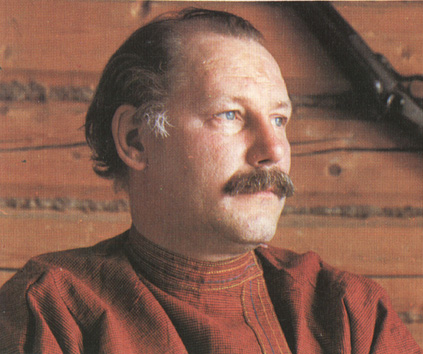
Vladimir Fedorovich Stozharov
Stozharov was born in Moscow in 1926. Like so many of the best Moscow artists of his generation (the Tkachev brothers and Geli Korzhev among them) he entered the Moscow Intermediate Art School before World War II. Stozharov was a student at the school from 1939 till 1945, in other words during his teen years; here he was taught by V.V.Pochitalov (an impressionist-influenced painter who was the school's guiding hand), A.P.Shorchev and P.T.Koshevoi. This was followed by six years of training, from 1945 to 1951, at Moscow's elite Surikov Institute, where he worked in the studio of the well-known realist G.K.Savitski (himself the son of one of the leading Itinerants). Stozharov began exhibiting in 1953 and took part in some 30 exhibitions in the next five years alone. He soon established himself as an outstanding figure. Together with the master of the older generation, Arkadi Plastov, Stozharov spearheaded the move to Russia country subjects among painters after the death of Stalin.
This move was broadly paralleled by the well known "village prosc" movement in Russian literature. He specialized in provincial landscapes, especially of the Russian North, which he executed in a broad, vigorous manner, often using a characteristic wide, panoramic format. The peasants who appear in Stozharov's paintings are always rooted in the landscape: in stark contrast to much socialist realism, people are not portrayed as heroic masters of the Russian soil, but as its undemonstrative, yet time-honored, inhabitants. Stozharov was an enormous influence on his contemporaries. His honors included membership of the USSR Academy of Arts; and in 1968 a prestigious Repin Prize (the Russian State Prize for art). He died in Moscow in 1973, not yet fifty years old. One man shows of his paintings were held in the Russian regions - in those Northern places such as Syktyvkar, Vologda, and Kalinin (Tver), where he liked to work - in 1974, and in Moscow in 1977. Today he is recognized as one of the classic figures in the history of twentieth century Russian realism.
© 2002 Overland Gallery All rights reserved.
http://www.overlandgallery.com
© 2009-2025, All rights reserved.
